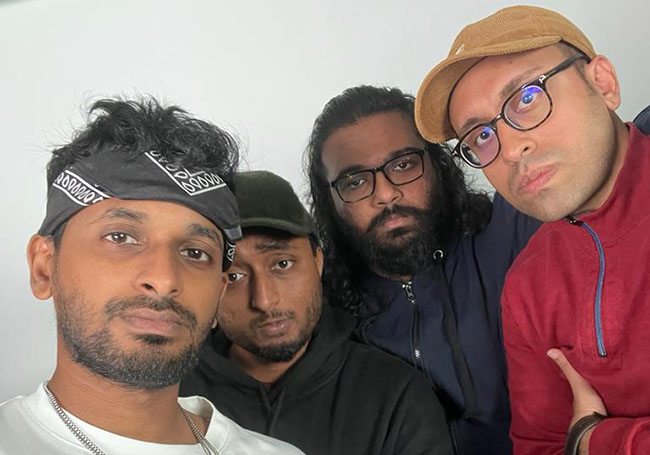
As Malaysia marks its sixty-fifth Independence day, a group dropped a rap song titled “Bangun”, diving deep into how it feels to be an Indian, hoping it would resonate with fellow Malaysians.
Vikneswaran Veerasundar, Vishnu Pathmanaban, Heer Raj and Jiven Sekar collaborated to produce the song, which has already gained more than two million views in three days on TikTok.
The song which starts with a caption “Budak-budak India Rap Melayu” is filled with satire and pulls no punches in delivering its message of enduring as Indian facing racism in daily life.
The four artists, who have yet to name their collaboration, felt rap music would enable them to amplify their message, and the national language would break down the barrier to reaching a wider audience.
Recently, Citizen’s Journal spoke to the group about what shaped the song’s message and what they intend to achieve.
Growing up under the shades of racism
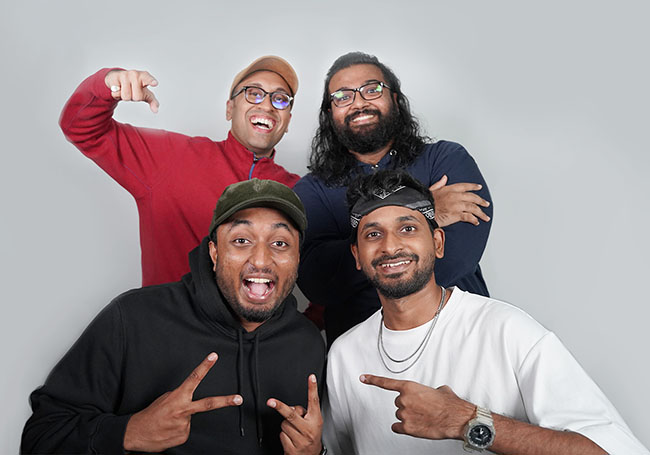
Discussing about Indian community is not new for Penang-born Vickneswaran, 29, better known as Vikar, who gained popularity through his Vikarworld YouTube channel.
Growing up in Kuala Lumpur, he said he got along very well with people of different races and genuinely had good friends.
“I think now that I’m older, I see racism almost every day to the point I’m immune to it. Most of the time, I will brush it off and carry on with my life,”
Meanwhile, Vishnu Pathmanaban, 30, who grew up in Petaling Jaya, said he had two friends from the same neighbourhood who were Malay and Chinese.
When discussing racism, Vishnu didn’t mince his words.
“It’s pretty known that among the issues faced in the country is racism. I feel the race card comes up when tensions are high to avoid actual issues affecting the country,” stressed Vishnu.
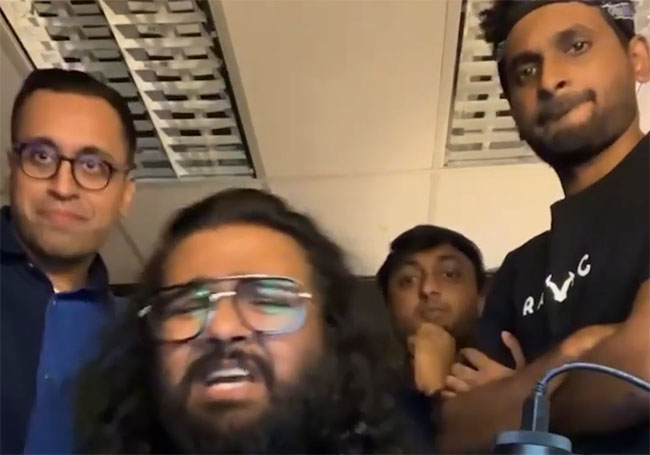
He also admits that just about anyone in the country will experience racism. However, it becomes intense and painful when you are a minority.
Radio announcer Hiren Raj, 29, said he had a diverse experience growing up, having many Malay and Chinese friends, and he did experience racism.
“I vividly remember my classmates in primary school occasionally saying things to me that now in hindsight, were extremely disrespectful and rude because of my race.”
“They didn’t know what they were saying and were regurgitating what they had been taught at home,” said Raj, who is also known as Raj Mahal.
On the contrary, coming from a family of mixed racial marriages, Jiven Sekar, 30, said he never saw racism growing up, even though he grew up with friends of different races.
“However, when I was looking to purchase a house, I noticed how divided we are and started understanding how segregated we are.”
According to Jiven, the whole experience had a profound impact on him.
“I have seen, and experienced friends who could not get scholarships because of the quota system or a house not rented out to them because they are Indian,” said Jiven.
Making the “Bangun” song
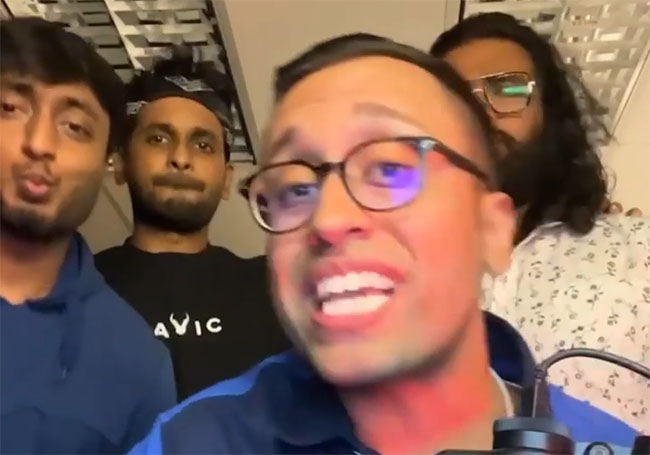
The four rappers came from diverse backgrounds with varying experiences. They acknowledged that they would not be able to overcome the racism individually.
However, they are optimistic that they might be able to do something as a group.
“This is why we did the song together, coming from different backgrounds.”
“We wanted to show people that being united and giving a voice strengthens the message,” said Jiven, who feels the topic resonates strongly with Malaysians.
Furthermore, according to Raj, he was emotional when he was writing his verses.
He said we must acknowledge that there are issues within the community, and some quarters are part of the larger problem of racism.
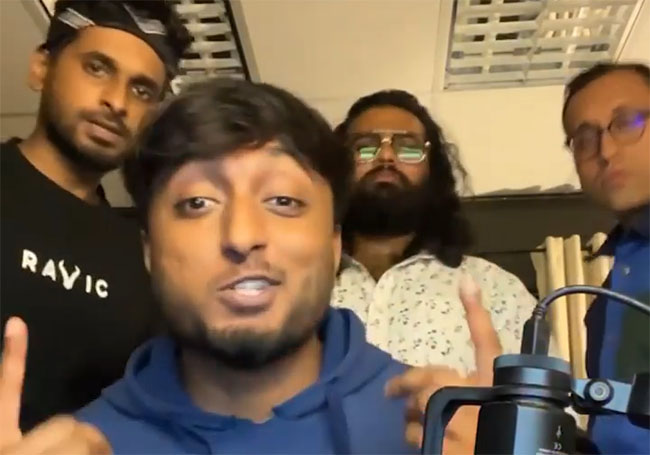
“I had just gotten bigger opportunities in the entertainment industry, and immediately I heard rumours of people I look up to within the entertainment industry, people of my race, spreading slander and questioning my capability of receiving these opportunities.
“I have often heard similar stories of people dragged down by others they consider friends,” he added.
Vishnu echoes a similar sentiment and says that as a race, we need to start being kinder to one another.
“It’s not unknown that Indians hate seeing other Indians succeed or do better than them. I’m not saying every Indian thinks like that, but I know many people like that.”
“We need to use our energy for something more productive to better ourselves and the people around us. With that mentality, we as people would never progress,” said Vishnu.
Uniting the nation
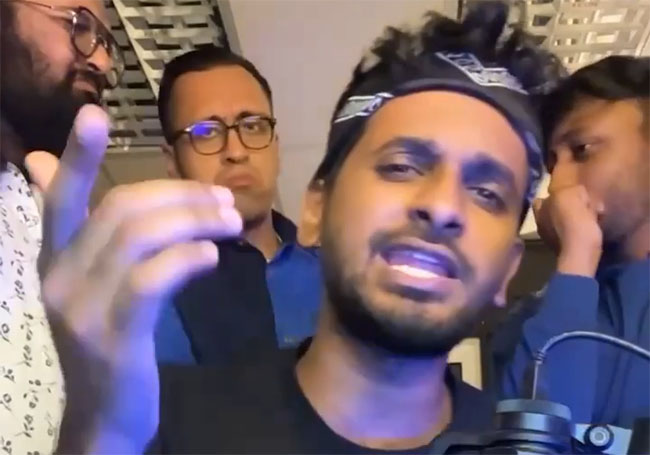
The four rappers were in unison with the view that Malaysia will become even more polarised if everyone continuously ignores the problem.
“I think it helps to have more people be aware that the minorities in this country are going through these problems, and hopefully, we can find some solutions for it,” they said.
They also feel that we should be aware of current issues in the country, speak up about them, have discussions and stay united.
“Coming together and discussing how we can overcome our shared struggles and contribute to the larger community, regardless of race, is vital.”
Relating to his adolescence experience, Raj feels that we should let bygone be bygone.
“Now that I’m older, the focus is not on being shackled by the pains of my past but what we can do to rise from our struggles and ensure our children don’t repeat the same divisive behaviour to Malaysia,” said Raj.
Meanwhile, Jiven, who broke into Tamil verses, believed that language is the barrier for people to connect however music breaks this barrier.
“It felt only right to have the song end in Tamil because it represents the people who we are talking about.”
The majority should be able to hear how the minority speaks, added Jiven.
As a final note, Vikar thinks that speaking out and voicing concerns and dissatisfaction is the first step.











